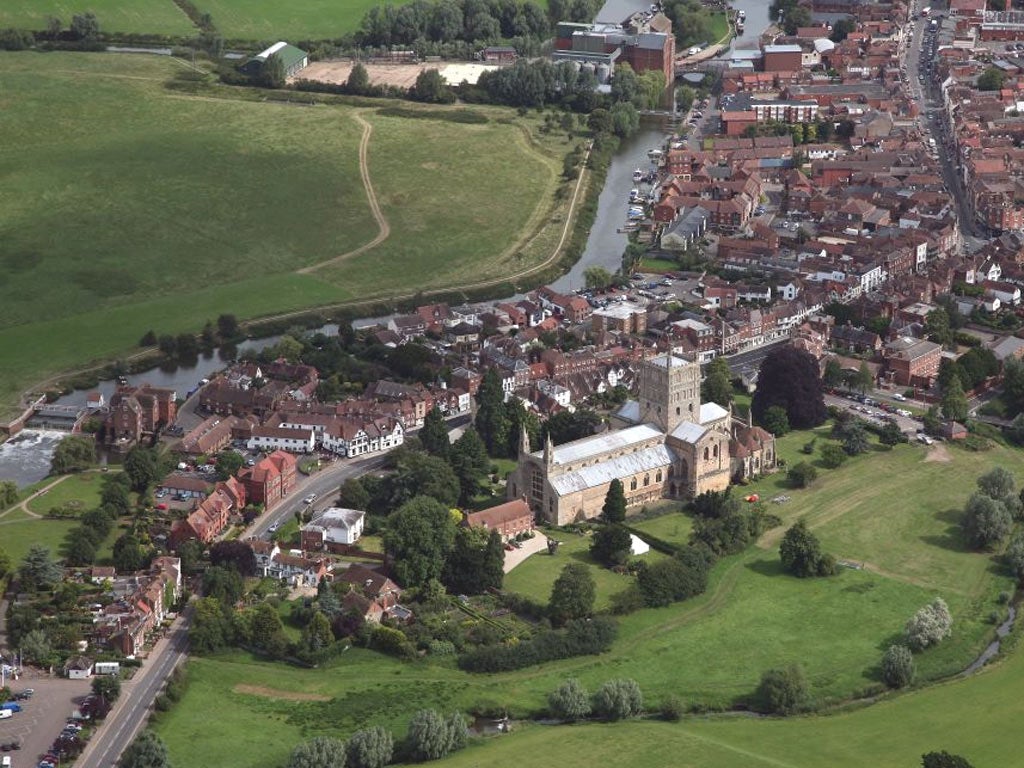Ministers join rebellion against more building in countryside
Tories representing rural constituencies fear public backlash over looser planning regime

Your support helps us to tell the story
From reproductive rights to climate change to Big Tech, The Independent is on the ground when the story is developing. Whether it's investigating the financials of Elon Musk's pro-Trump PAC or producing our latest documentary, 'The A Word', which shines a light on the American women fighting for reproductive rights, we know how important it is to parse out the facts from the messaging.
At such a critical moment in US history, we need reporters on the ground. Your donation allows us to keep sending journalists to speak to both sides of the story.
The Independent is trusted by Americans across the entire political spectrum. And unlike many other quality news outlets, we choose not to lock Americans out of our reporting and analysis with paywalls. We believe quality journalism should be available to everyone, paid for by those who can afford it.
Your support makes all the difference.Conservative ministers have joined the revolt against the Government's controversial proposals to relax the planning rules to allow more building in the countryside.
The rebel ministers have written strongly worded private letters to Greg Clark, the Planning minister, urging him to think again about his move to streamline planning guidance to include "a presumption in favour of sustainable development".
David Cameron regards the change as a crucial part of his "go-for-growth" strategy, because more housebuilding would give the economy a boost. A new housing strategy is expected to be unveiled next week, but critics claim the new planning rules would result in a free-for-all that could ruin large parts of the countryside.
Until now, criticism of the planning shake-up has been confined to Tory backbenchers echoing the concerns of environmental groups. Now the Prime Minister is facing a rebellion from ministers who represent rural constituencies and fear a public backlash unless the draft National Planning Policy Framework is rewritten.
One said yesterday: "Downing Street is completely out of touch on this subject – it is causing widespread anger out in the country. It could have been sorted out pretty easily if only some of the bright sparks around David Cameron spent more time talking to real people."
Another minister said: "It is very worrying. It is likely to result in the destruction of some of our most beautiful rural areas. This document is more about quantity – and the need to build houses – than quality, the need to preserve our countryside." The minister added: "We are losing the argument on this. It is very unpopular in the country and the media. We should go back to square one and rewrite what is a badly drafted document."
Despite the Government's commitment to "localism", some ministers believe the new guidance would force planning inspectors to override the views of councils and their residents when they opposed building projects. They claim the document presents a "false choice" between growth and preserving the countryside instead of ensuring both, and warn that it would encourage farmers to earmark land for development.
The rebel ministers believe there is scope for more housebuilding on brownfield sites without invading the green belt. The Campaign to Protect Rural England argues that such previously developed land could provide 1.5 million homes – enough to meet the Government's building targets for six years.
Despite the high-level protests, Mr Clark is expected to push ahead with his proposal to slim down 1,300 pages of planning rules to just 52. The formal consultation process has ended and his final statement, expected in January, is likely to include only minor changes.
Allies of Mr Clark played down the representations he has received from fellow ministers, insisting it was "standard practice" for them to write on behalf of their constituents because they were not allowed to speak in public on issues outside their own brief.
Yesterday Labour warned that developers could be given the go-ahead to build in England's 10 national parks, which include Dartmoor, Exmoor, the Lake District, Peak District and New Forest. The Government plans to give park authorities a new duty to "facilitate sustainable development". Mary Creagh, the shadow Environment Secretary, said the change could amount to a "licence to build on our national parks".
A separate consultation exercise on the parks is being carried out by the Department for the Environment, Food and Rural Affairs, which insists they will remain "England's crown jewels".
Mr Cameron defended the Government's planning strategy on Tuesday when he met Dame Fiona Reynolds, director general of the National Trust, which has led the opposition to the shake-up. She urged the Prime Minister not to use the economic crisis as a "smokescreen" for a "quick fix" planning free-for-all which would be regretted in the long term.
A Number 10 spokesman said: "We are determined to deliver a simpler planning system which makes absolutely clear the Government's intention to provide the homes and jobs that the next generation needs while protecting our countryside."
Planning reform: For and against
The property firms pushing for planning reform...
Taylor Wimpey: managers discussed "the burden of regulation in planning" with the Local Government minister, Bob Neill, in January
Helical Bar: Chief executive Mike Slade is head of the Conservative Property Forum
The Barratt Group: Representatives have held two meetings with government ministers
And groups resisting reform...
The National Trust: Vociferous in its opposition, galvanising its 3.8 million members into action.
Campaign to Protect Rural England: Called the draft policy "unworkable and damaging"
Natural England: The proposals could have "unintended consequences" for the environment.
Royal Society for the Protection of Birds: Concerned that the plans will jeopardise Sites of Special Scientific Interest.
Join our commenting forum
Join thought-provoking conversations, follow other Independent readers and see their replies
Comments